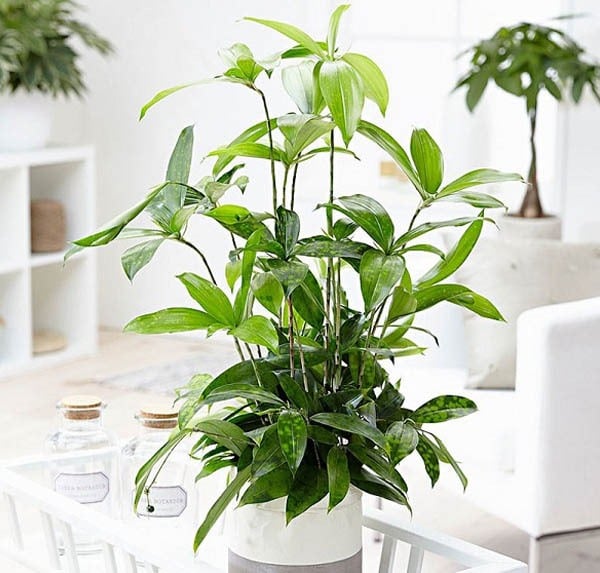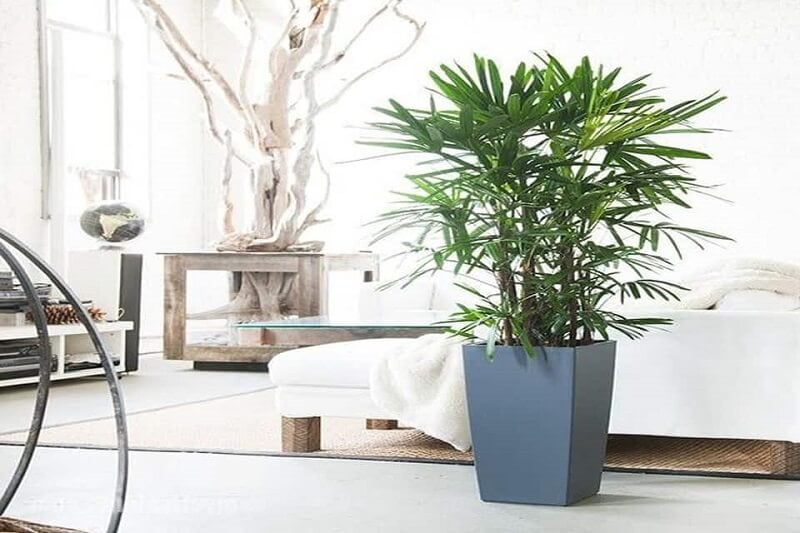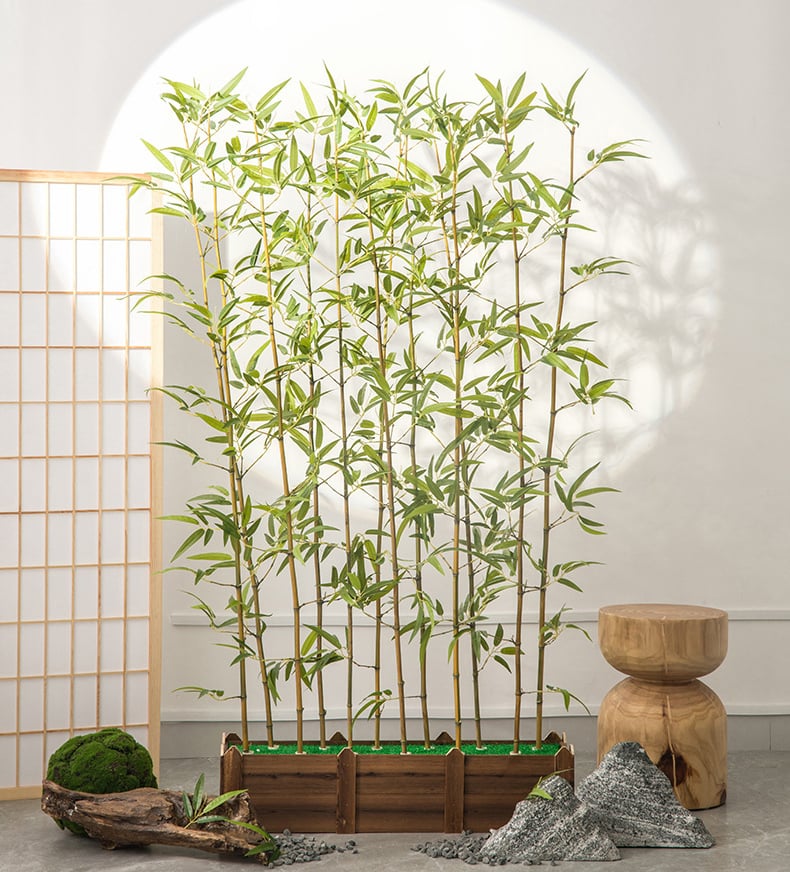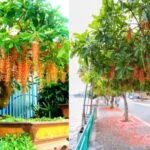Bamboo is a familiar and beloved plant, not only for its decorative qualities but also for its cultural and feng shui significance. Many people choose to grow a few bamboo plants in their gardens or homes to add a unique touch to their living spaces.
Aside from its aesthetic value, bamboo offers numerous other benefits, especially in feng shui. It is often regarded as a symbol of luck and prosperity. Today, let’s explore the profound meaning of bamboo in feng shui, as well as planting tips and considerations to attract wealth and prevent misfortune.
The Significance of Bamboo in Feng Shui
Bamboo has tall, straight stems and is highly adaptable to different environmental conditions. Notably, it retains its beauty and vigor even in harsh weather. Because of these characteristics, bamboo is seen as a symbol of numerous positive values in feng shui:
Dispelling Negative Energy
Among plants used in feng shui for dispelling negative energy, bamboo stands out as a superior choice.
Compared to other plants, especially those with thorns, bamboo not only wards off negative energy but also attracts good luck into living spaces. Bamboo, with its graceful form, tall stature, lush green and elegant leaves, and pleasant fragrance, grows in clumps with a reasonable density, making it an ideal and safe option.
The characteristics of bamboo not only help prevent negative energy but also open up space to welcome auspicious signs. Thus, it has become one of the top plants for dispelling negative forces.
Attracting Wealth and Prosperity in Career and Academics
In the cultural traditions of East Asia, bamboo is often likened to the image of a noble person, symbolizing good luck in academics and careers.
This plant not only boosts career opportunities but also encourages learning and attracts wealth. Notably, if there are children in the family who are studying, bamboo can have effects similar to those of the Wen Chang tower, creating favorable conditions for learning and intellectual development.

This plant not only boosts career opportunities but also encourages learning and attracts wealth for the whole family.
Symbol of Health and Longevity
With its vibrant green color all year round, bamboo is considered a symbol of health and longevity, especially in the lives of the elderly. The straight and towering bamboo stalks represent enduring health and longevity. Bamboo’s vigorous growth reflects resilience and symbolizes positive values in life, contributing to the preservation of health and the elevation of the spirit.
Enhancing Positive Energy for the Family
According to feng shui beliefs, the proverb, “Bamboo brings peace and prosperity,” highlights bamboo’s role as a symbol of harmony and abundance. Bamboo not only adds natural beauty but is also believed to enhance positive energy in living spaces, creating a harmonious and peaceful environment for the family. Its presence is considered a positive factor in attracting wealth and luck into the home.
Representing Resilience and Integrity
Bamboo, with its slender yet resilient form, evokes a sense of strength and resilience in the face of adversity. Its ability to endure drought, along with its deep and firmly rooted system, symbolizes the steadfastness of noble-minded individuals. This plant was highly valued by scholars and aristocrats in the feudal era, representing their ideal way of life and noble qualities.
In the past, bamboo was likened to the image of a noble person, always standing tall and symbolizing integrity and elegance. Bamboo, along with plum and pine trees, forms the trio of cold-resistant plants known as “Friends in Cold Weather,” cherished for their ability to withstand harsh conditions.
Today, bamboo is not only a symbol of resilience but also a favorite among entrepreneurs and politicians. Bamboo is often used to praise those with noble qualities, symbolizing resilience, fortitude, and the bringing of good luck and fortune.

Bamboo is favored by entrepreneurs and politicians for its symbolism of resilience and good fortune.
Ideal Placement of Bamboo Plants According to Feng Shui
Given the positive meanings associated with bamboo, many people wish to incorporate this plant into their living spaces. But what is the ideal location for growing bamboo?
Depending on personal preferences and needs, homeowners can choose different locations to plant bamboo, such as inside the house, in front of the entrance, or in the garden. Each position will create different feng shui effects, enhancing prosperity and peace in the living environment.
Growing Bamboo Plants in Living Spaces
In feng shui, bamboo is believed to possess strong yin energy, making it well-suited for places with abundant yang energy, such as areas with frequent human movement like staircases, hallways, or living rooms.
Bamboo not only holds feng shui significance but also improves air quality by filtering dust, creating a healthy and refreshing atmosphere for the family.
Many people also believe that placing a potted bamboo plant on a table inside the house helps maintain harmony, fostering a peaceful environment and preventing unwanted conflicts. For a desk or workspace, bamboo can attract luck, opportunities, and career advancement.
Additionally, bamboo is known for its ability to dispel negative energy. Thus, many families have chosen to grow bamboo to balance yin and yang, regulate the atmosphere, and bring peace and happiness to all family members.

Bamboo is an excellent choice for dispelling negative energy and attracting positive forces.
Planting Bamboo in Front of the House
Unlike smaller bamboo plants typically grown indoors, natural bamboo, with its slender form and impressive height, is ideal for planting in front of the house as a feng shui tree.
Bamboo embodies both grace and resilience; it stands strong in the face of storms and adverse conditions. Thus, it has become a symbol of robust life force and tenacity. Additionally, bamboo represents strong unity as it typically grows in clumps and thrives even in challenging soil conditions.
In feng shui, planting bamboo in front of the house not only brings good luck and fortune but also helps ward off bad luck and protects the homeowners from misfortune. With its serene and elegant appearance, bamboo conveys peace and refinement, contributing to the family’s prosperity and tranquility.
In the minds of many, bamboo and its close relative, the bamboo-like grass, are models of integrity and majesty. Their slender, towering stalks with distinct nodes exemplify the noble qualities of resilience and fortitude in the face of adversity. Therefore, planting bamboo in front of the house not only repels risks but also attracts good luck for the homeowners.
Information provided is for reference and contemplation only
“A Well-Lit Room’s Dichotomy: The Cultural Conundrum”
The age-old adage, “a bright living room is a sign of prosperity, but a bright shrine will lead to decline,” is an intriguing concept. It sparks curiosity about the reasoning behind this statement and the cultural significance it holds. This proverb hints at the delicate balance between opulence and humility, suggesting that while a well-lit living space reflects success, an overly illuminated shrine can lead to an imbalance of fortune.



































